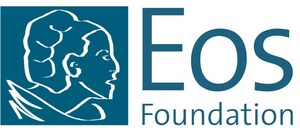Research reveals wide power gap for women in Mass. higher ed
First-ever statewide ranking and report, produced by the Eos Foundation, shows gender parity lagging in president and board roles and calls for deliberate action from state and private institutions
BOSTON, Sept. 27, 2018 /PRNewswire/ -- The first-ever statewide ranking of Massachusetts' higher education institutions based on women in positions of power reveals a significant lack of gender parity, especially at the state public higher education system and large private universities, according to a study released today by the Eos Foundation. The report, Women's Power Gap in Higher Education, draws from research Eos commissioned from the UMass Boston Center for Women in Politics and Public Policy and ranks 93 Massachusetts colleges and universities. Schools' composite scores are calculated by women holding influential positions at their institutions, including president, senior leadership, and the governing board. The data reflects the leadership as of the school year that ended June 30, 2018.
"While women comprise 57% of all college and university students in the state, only 31 percent of the presidents and chancellors of these school are women. The data shows we need thoughtful and concerted action to close the women's power gap," said Andrea Silbert, president of the Eos Foundation, who launched the Women's Power Gap Initiative.
"Our report is meant to create a benchmark and also help provide a roadmap for heading in the right direction toward gender parity," said Silbert. "We know the potential and will are there to close the gap. We believe gathering the data and giving it a platform are important steps toward progress as we discuss concrete steps to bring change."
The report digs deep into the power structure in Massachusetts higher education, placing the state's colleges and universities into four rating categories: satisfactory, status quo, needs improvement and needs urgent attention, with 20% of the list in the last category. The research's findings include:
- Massachusetts' public universities have the lowest percentage of women presidents/chancellors of all types of schools, with only 1 out of 15. There were 5 in 2008. With the open chancellor position at UMass Boston, there is an immediate opportunity to add more diversity to that campus' leadership.
- Among the Commonwealth's large universities, both public and private — 17 in all — none has a woman board chair.
- Of the 93 presidents represented in the study, only 5 are women of color.
- Women are underrepresented as board chairs among the state's public institutions of higher education, leading only 5 of 25.
"The numbers tell their own story, but we also know women represent 47% of all provosts and 52% of deans – positions which are the most frequent path to the presidency," Silbert said. "So the pipeline is there. We just have to take advantage of it."
Silbert added that several schools already are leading the way with women representation in positions of power and influence. There are some positive areas, including Massachusetts' private colleges, with 47% having women as president. Also, six women were presidents of the Commonwealth's 15 community colleges and two more were recently added for the new academic year.
The report's recommendations for action include:
- Schools that have not achieved gender parity on their boards should fill immediate vacancies with women, and particularly, women of color, until parity is reached.
- The Governor and legislature should make gender and racial parity at public institutions a top priority, setting diversity goals and holding public boards and college presidents accountable for greater diversity at all levels.
- All institutions, public and private, should elevate more women to serve as chairs and officers on their boards when the next round of officers' terms expire.
- Other states, including California and New York, have models and results Massachusetts could learn from for assuring more women and minority representation.
The report kicks off the Eos Foundation's Women's Power Gap Study Series that will examine gender parity at other sectors in the Massachusetts economy.
About the Women's Power Gap Initiative:
The mission of the Women's Power Gap Initiative is to dramatically increase the number of women leaders from a diverse set of backgrounds across all sectors in Massachusetts. The Initiative will conduct research on the prominent sectors of the Massachusetts economy, measure the extent of the power gap, and propose solutions to reach parity. The Women's Power Gap in Higher Education: Study and Rankings is the first in the series of sectors the Eos Foundation will explore.
For more information, please visit https://womenspowergap.org/.
CONTACT:
Hilary Allard
[email protected]
617-337-9524
SOURCE Eos Foundation
WANT YOUR COMPANY'S NEWS FEATURED ON PRNEWSWIRE.COM?
Newsrooms &
Influencers
Digital Media
Outlets
Journalists
Opted In





Share this article